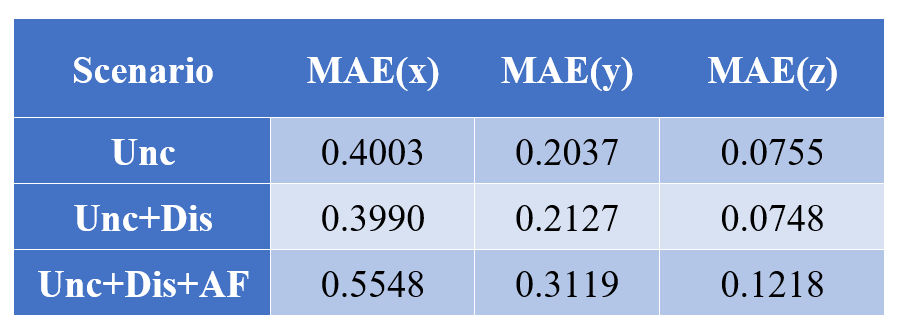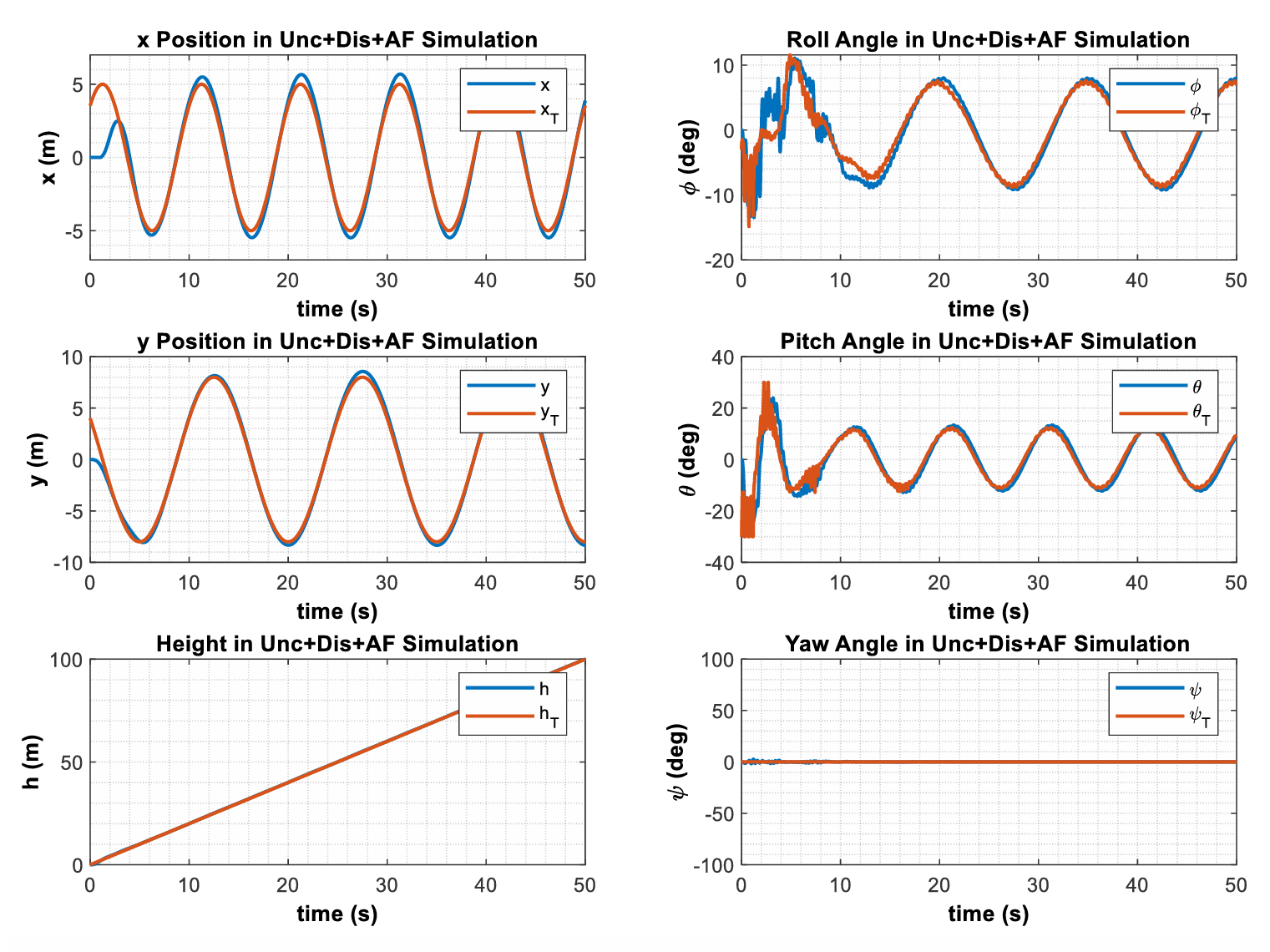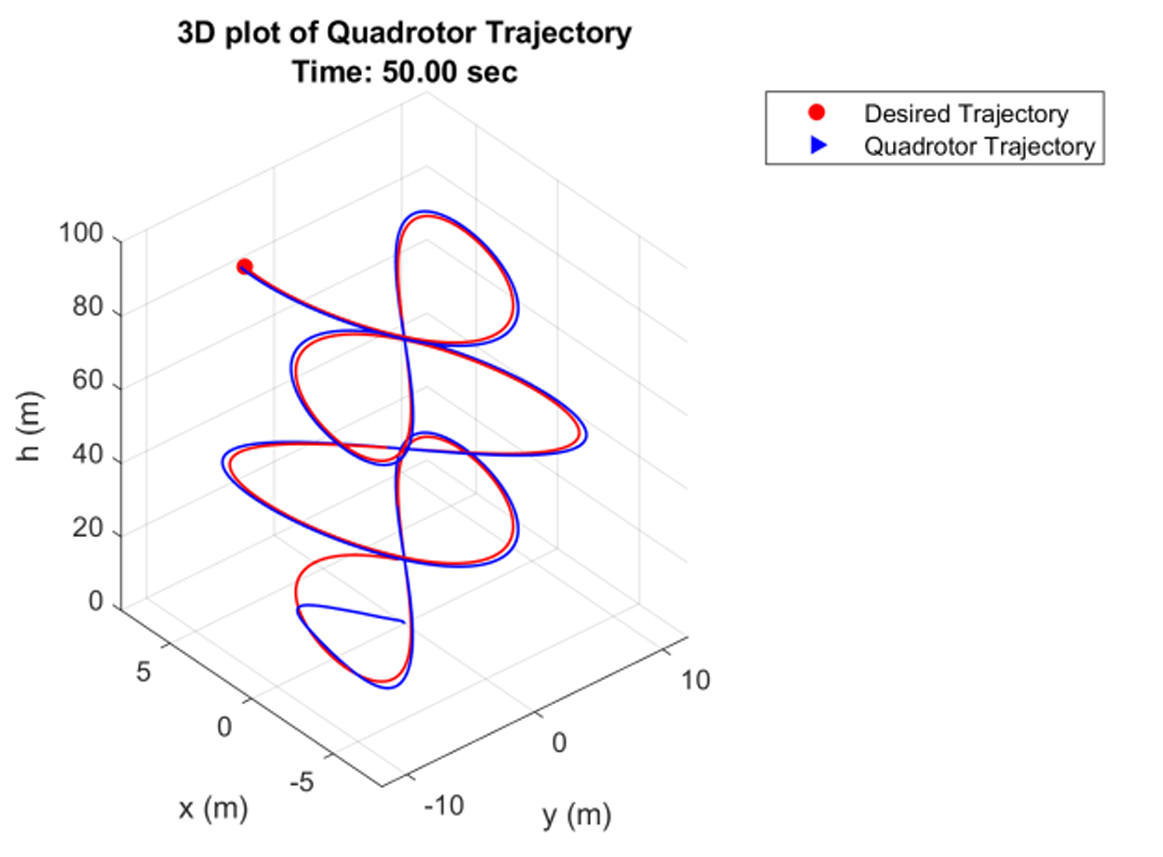Learning AMPC
Learning-based Adaptive MPC of Quadrotor
Robust fault-tolerant trajectory tracking of a quadrotor based on learning-based adaptive model predictive control
In this research, a learning-based adaptive model predictive control (MPC) structure is proposed for fault-tolerant trajectory tracking control of quadrotors in the presence of uncertainties and disturbances. The predictive control method used is acceleration-based, and the predictive model is linearized at each time step around the future trajectory to minimize computational cost in the optimal control problem.
In the proposed approach, a Radial Basis Function (RBF) neural network is used to predict the difference between the actual system behavior and the prediction based on the nominal predictive model. The neural network weights are updated online using the Recursive Least Squares (RLS) method based on system output. The MPC then uses the estimated model to predict future behavior and generate optimal control inputs. Additionally, a disturbance observer is included to account for neural network estimation errors. The proposed control system architecture is shown below:



